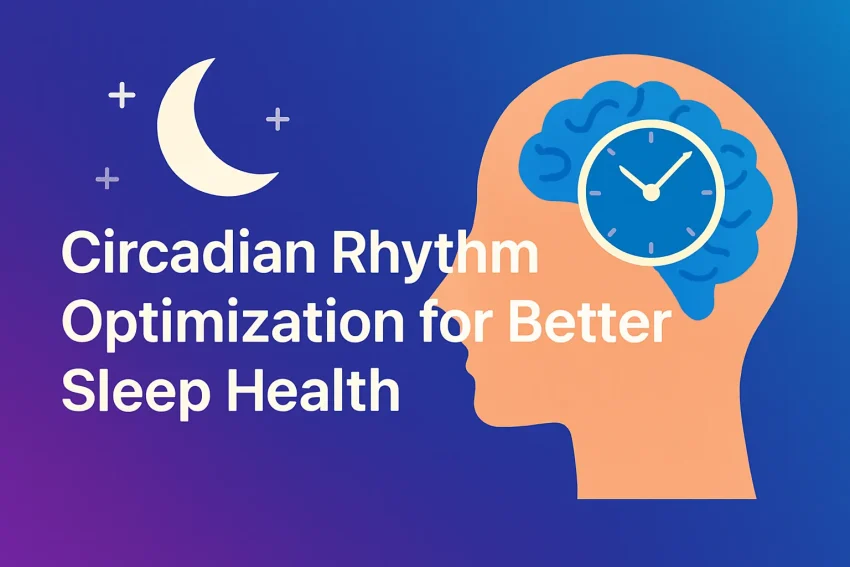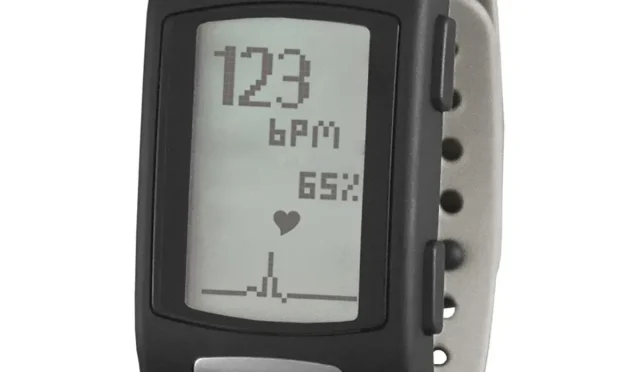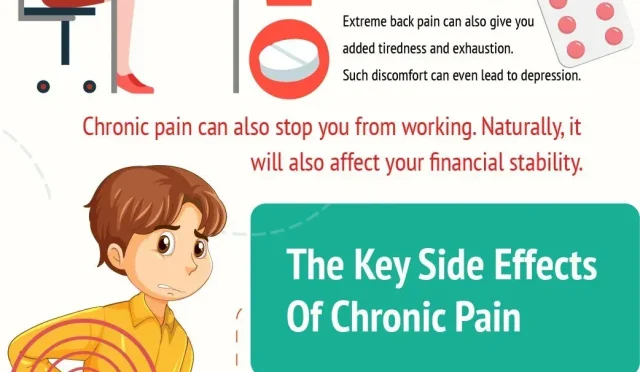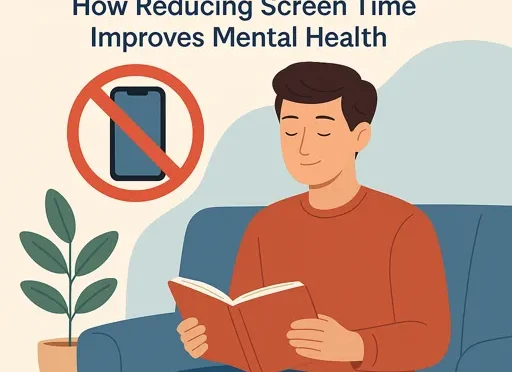Circadian Rhythm Optimization for Better Sleep Health
In an age of screens, late-night work sessions, and global time zones, the battle for quality sleep is more difficult than ever. While many turn to supplements or sleep trackers, few address the core of long-term sleep health: Circadian Rhythm Optimization. Understanding and aligning with your natural biological clock is one of the most effective ways to improve not just sleep quality, but overall well-being.
What is the Circadian Rhythm?
The circadian rhythm is a 24-hour internal clock that regulates sleep-wake cycles, hormone release, digestion, and even cognitive performance. It is heavily influenced by external cues—especially light and darkness—and plays a crucial role in maintaining mental and physical health.
At the heart of this rhythm is the suprachiasmatic nucleus (SCN), located in the hypothalamus. This master clock synchronizes peripheral clocks in organs and tissues throughout the body, ensuring biological processes occur in harmony.
Why Circadian Rhythm Matters for Sleep Health
Circadian rhythm misalignment can lead to a cascade of health problems:
- Insomnia
- Daytime fatigue
- Impaired memory and concentration
- Mood disorders (e.g., depression, anxiety)
- Metabolic issues (e.g., obesity, diabetes)
- Increased risk of cardiovascular disease
Optimizing your circadian rhythm allows the body to enter restorative sleep cycles more easily, producing higher quality sleep without the need for medication.
The Science Behind Light and Melatonin
One of the most powerful external cues for regulating circadian rhythms is light. Exposure to natural light in the morning helps reset the SCN and promotes alertness by suppressing melatonin—the hormone that signals it’s time to sleep.
Conversely, exposure to blue light from phones, tablets, and computers at night delays melatonin release, disrupting the natural rhythm and making it harder to fall asleep.
How to Optimize Your Circadian Rhythm
1. Consistent Sleep-Wake Schedule
Go to bed and wake up at the same time every day, even on weekends. This helps train your biological clock to operate on a predictable cycle.
2. Morning Light Exposure
Spend at least 15–30 minutes outside in the morning sun. If not possible, consider using a light therapy box to simulate daylight exposure.
3. Limit Evening Light
Dim lights in your home 1–2 hours before bedtime. Use screen dimmers, blue light filters, or apps like f.lux to reduce the impact of electronics.
4. Control Meal Timing
Eating too late can disrupt the body’s metabolic rhythm. Aim to finish your last meal at least 2–3 hours before bedtime.
5. Optimize Your Sleep Environment
Keep your bedroom cool (around 18–20°C), dark, and quiet. Use blackout curtains, white noise machines, or sleep masks as needed.
6. Caffeine and Alcohol Timing
Avoid caffeine after mid-afternoon and alcohol close to bedtime. Both interfere with sleep architecture and delay the onset of REM sleep.
7. Evening Wind-Down Routine
Incorporate low-stimulation activities before bed such as reading, meditation, or light stretching to cue your brain that it’s time to slow down.
Chronotypes and Personalized Sleep Schedules
Not everyone has the same internal clock. Your chronotype—whether you’re a morning person or a night owl—is largely genetically determined. Understanding your chronotype allows for a more personalized circadian alignment strategy:
- Morning Types: Thrive with early wake-ups and benefit from exercising in the morning.
- Evening Types: Peak cognitive function in the late afternoon or evening and may struggle with traditional 9–5 schedules.
- Intermediate Types: Fall somewhere in between and adjust more easily to societal norms.
Aligning your work, sleep, and meal schedules with your chronotype can significantly enhance both performance and well-being.
Wearables and Tech for Circadian Tracking
Modern wearables like Oura Ring, Whoop Strap, and Apple Watch now offer insights into sleep cycles, temperature variations, and resting heart rate—all useful markers for circadian health.
Some also include chronobiology-based recommendations, adjusting fitness and recovery suggestions based on your circadian trends.
Shift Work and Jet Lag: Special Circumstances
For those working night shifts or frequently changing time zones, circadian optimization becomes more challenging but still possible:
- Use strategic light exposure and melatonin supplementation to shift your internal clock.
- Gradually adjust sleep/wake times 2–3 days before traveling or rotating shifts.
- Maintain a dark, quiet sleep environment during the day if working nights.
The Role of Nutrition in Circadian Regulation
Recent studies in chrononutrition—the science of how meal timing affects biological rhythms—show that when you eat is nearly as important as what you eat.
- Eat breakfast within 1–2 hours of waking to support metabolism
- Avoid high-carb or sugary snacks at night which can cause blood sugar spikes
- Intermittent fasting, when aligned with circadian cycles, may enhance fat metabolism and reduce inflammation
Sleep Disorders and Circadian Disruption
Circadian rhythm disorders are recognized clinical conditions:
- Delayed Sleep-Wake Phase Disorder (DSWPD)
- Advanced Sleep-Wake Phase Disorder (ASWPD)
- Non-24-Hour Sleep-Wake Disorder (common in the blind)
- Irregular Sleep-Wake Rhythm Disorder
These require medical intervention, often involving behavioral therapy, light therapy, or melatonin under supervision.
Circadian rhythm optimization is not a quick fix—it’s a lifestyle strategy rooted in biological science. Aligning your sleep-wake cycles with your natural rhythm leads to better sleep quality, improved mood, enhanced performance, and long-term health benefits.
By embracing the wisdom of your internal clock, you move beyond short-term sleep hacks and towards a truly restorative, sustainable approach to health.
#CircadianRhythm #SleepHealth #Chronobiology #LightTherapy #BiohackingSleep








